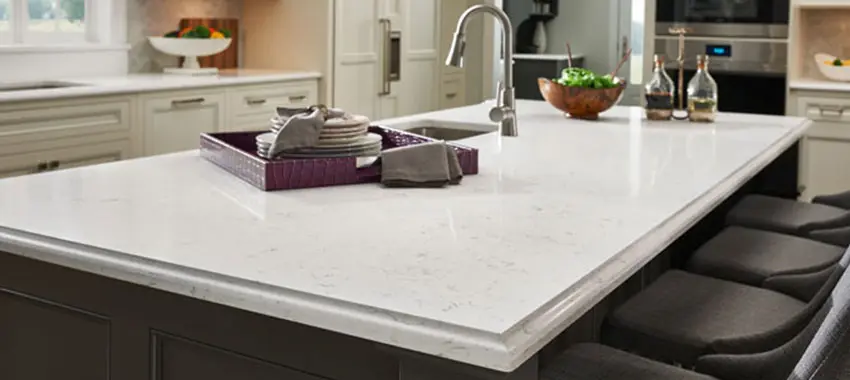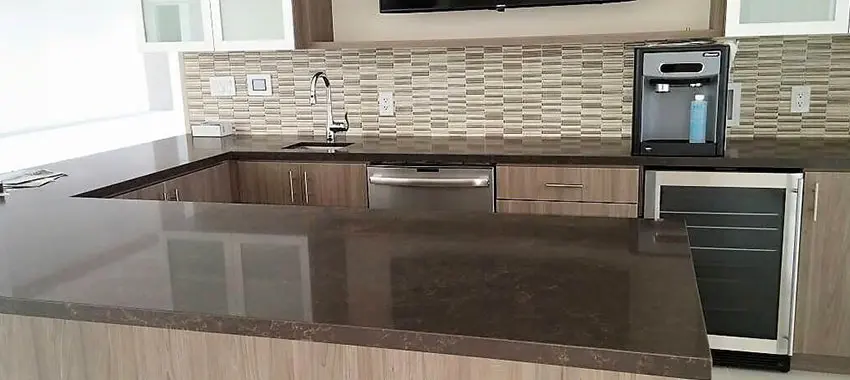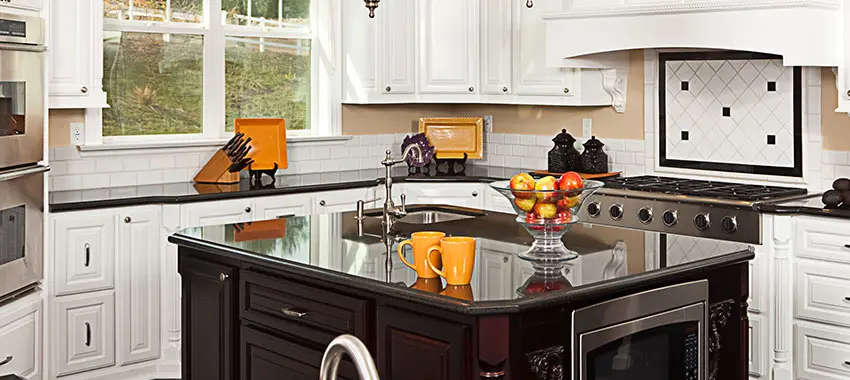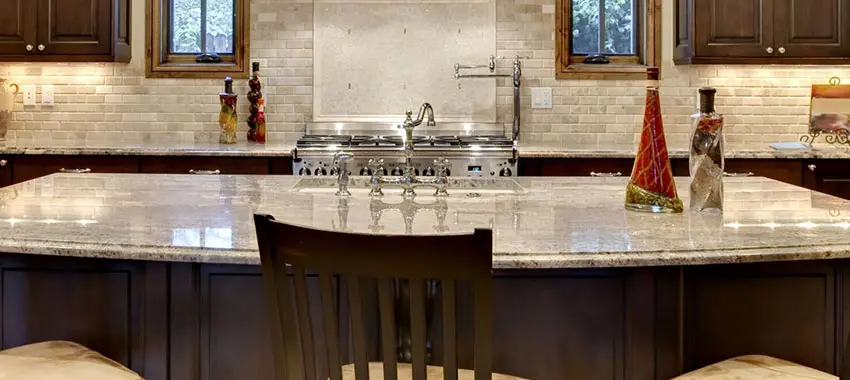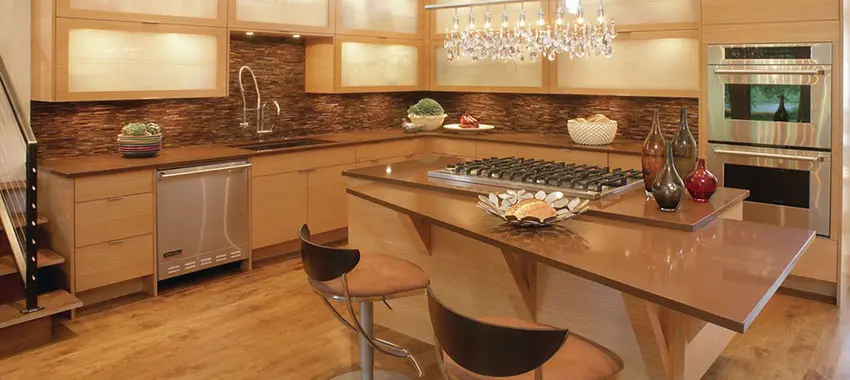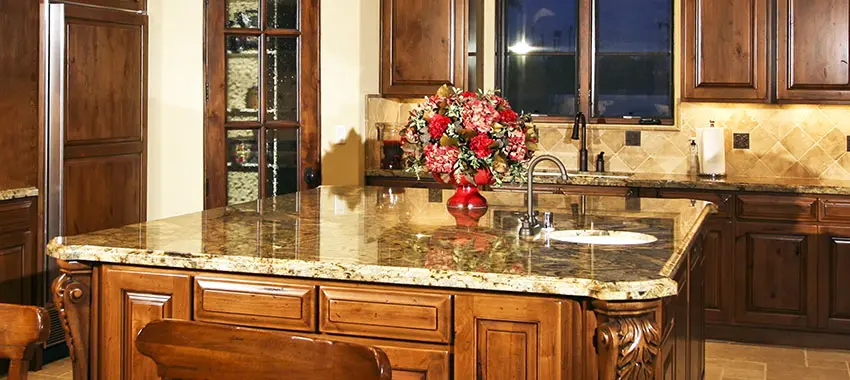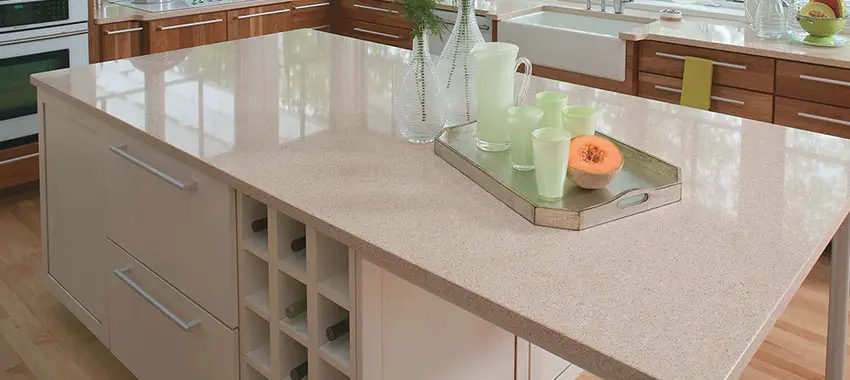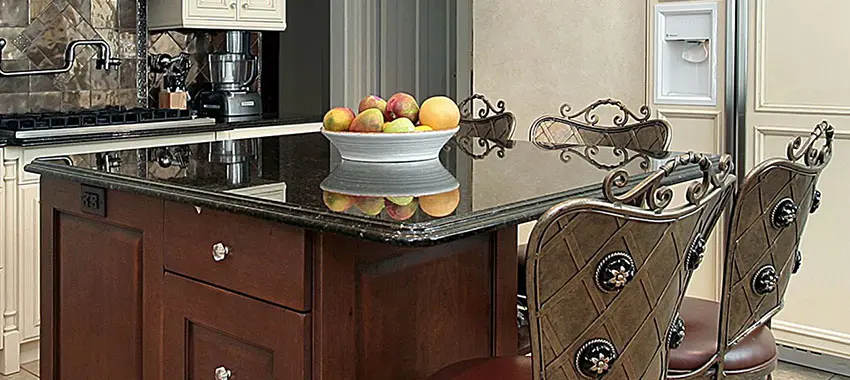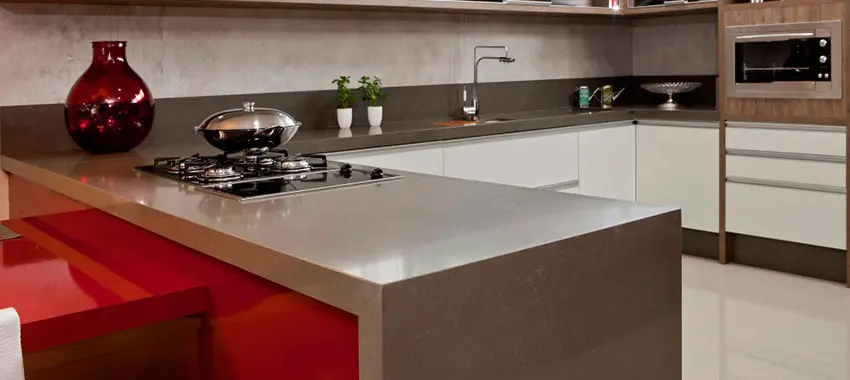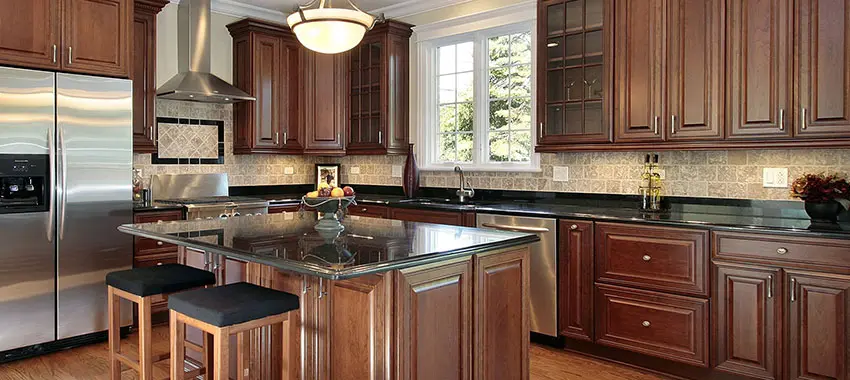May
10 Countertop Materials You Can Choose In Place Of Marble
- 2024
- FlintStoneTops
Marble is a beautiful countertop material, but since it’s an expensive material, a lot of people can’t afford it. Those who can, still want an option that looks like marble or more durable than marble, but with a lower price tag. If you want countertop materials similar to marble, then you’re at the right place. Hint: some are even better than marble such as granite and quartz countertops. Let’s begin!
Alternatives To Marble Countertops
Quartz
If marble isn’t in your budget and you just can’t deal with the mountain of maintenance it needs, then you can skip it and go for a very durable, beautiful, and simple quartz.
Quartz is a man-made material made out of natural quartz, minerals, and resin all packed together to give a countertop that is so strong that it will outlive everything else. You can get quartz in a variety of colors too, but if you want to stick to the light marble theme, then quartz has tons of options for you to choose from.
The light background with the contrasting subtle veining is to die for and you will love the look of it in your kitchen. It’s certainly the closest material to marble as far as looks are concerned and it’s also one of the most long-lasting ones, so you know that you won’t need to slave over its maintenance.
Onyx
Even though its name is anything but light, onyx comes in a lot of light colors too and one of the striking resemblances it has to marble is the fact that it looks very much like the fragile stone, but it’s anything but. The color variety of onyx will leave you confused in the best way and you can rest assured that these slabs will last long in the kitchen.
Another great thing about onyx is that it’s very resistant to heat, so say goodbye to those heat stains.
The only downside is that it needs to be sealed because the surface of onyx has a lot of pores that tend to suck water and moisture in. This can ruin your countertops. So, seal them and you will be good to go.
Quartzite
It sounds like quartz, but it’s natural stone and it looks just like marble. If you want to get your hands on a natural stone, since marble is one too, you’re going to love quartzite countertops. Quartzite has that soft and rough and tough finish that perfect quartz doesn’t have and it looks amazing in the kitchen.
It also has a decent color variety and since it’s primarily available in lighter colors, you can get your hands on muted hues. However, just like any other natural stone, you will need to make it waterproof by sealing it. It’s a measure that will make it long-lasting.
Granite
Next in line is granite. Now, you might be thinking: How does granite make a good alternative to marble? It’s dark! Well, granite is available in lighter colors too and you can get amazing slabs in muted colors with the same natural beauty that everyone knows and loves about marble. And the plus point is that granite is more rigid and durable than marble.
There is also subtle veining and mosaic patterns on granite that add that extra layer of something-something to your countertops. Moreover, many types and qualities of granite are cheaper than marble.
Soapstone
Just like its name, soapstone is light, soft, and slippery in the best way. If you want something that looks like marble but has the feel of butter, then soapstone is the material for you. It is soft to the touch and the random subtle and heavy veining just takes this material to the next level.
Be warned though because soapstone is a very fragile material and it can be chipped or cracked if you put too much pressure on it. So, try to take it easy on the poor material and don’t use sharp knives directly on the surface of soapstone and also don’t put heavy items on it if you don’t want scratches or cracks on the surface.
Concrete
White concrete can also mimic the appearance of marble, that is if you do it right. White concrete is available in either pre-made slabs or you can get them fabricated and even add veining to give it that marble-like appeal.
Concrete is a highly porous material though and it can darken over time, especially if you get it wet a lot, so you’ll need to have it sealed and polished after every couple of months. However, it is a much cheaper, but durable option as compared to marble. So, there are many good things going for concrete.
Neolith
Neolith is a new material in the realm of countertops, but it’s getting more and more popular. It is made out of pulverized quartz, glass, and porcelain and it’s a lightweight and durable option for those who want their countertops to look like that of marble. It also has a reasonable price and it is affordable to install. Since it’s lightweight, most people can install it by themselves too.
To add to the qualities of neolith, it is also heat resistant, so all in all, it’s a great material for someone who wants marble-like countertops, but on a budget.
Porcelain
The beautiful porcelain! Even though porcelain slabs are seldom used in kitchens, you can still see the similarities between porcelain and marble. It’s a material that screams “opulence” and “indulgence” and the iridescent look and light color of porcelain will steal your heart.
However, it’s not as strong as the other options. It can chip pretty easily, so it might not be the best option for the kitchen. However, you can safely use it in the bathroom as countertops and vanities and that will look amazing. Porcelain can also be used to make shower fixtures.
But if you only want porcelain for kitchen countertops, there are some varieties that are tougher which can use.
Solid Surface
A durable, man-made option is solid surface. This material is pulverized minerals and resin all sealed together in a rock-hard thing of beauty. The light color is very similar to marble and it also has the option of veining like marble and natural stone countertops.
Solid surface is pretty much robust and indestructible. It’s heat resistant, it doesn’t stain, it doesn’t scratch and it also has built-in UV protection to prevent darkening of the countertops.
Vinyl
If you want a material that is affordable and can mimic almost all of the countertops known to man, then vinyl is the one you want to go for. It’s a combination of plywood slabs and decorative sheets on top. These sheets are magical things because you can print any countertop design on them, stick them onto the panel and call it a day.
It’s probably the cheapest option available so you can safely that it’s not as durable as other options on this list.
Conclusion
Who says you can’t get the beauty of marble countertops at a much more reasonable price? Now you can choose from a list of materials that look strikingly similar to marble. If you want the best options, choose granite or quartz. Get in touch with quartz countertop contractors Potomac to take a look at various light-colored quartz slabs.


